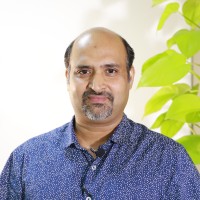Pakistan’s e-commerce sector is growing fast, but new tax policies could bring its progress to a stop very soon. At a press conference in Lahore, industry leaders warned that these taxes could harm small businesses and young entrepreneurs badly.

Background of the Crisis
The Pakistan Ecommerce Association (PEA), Enablers, and other groups organized the event to raise their serious concerns publicly. They stated that taxing e-commerce at this early stage could hinder innovation and significantly harm the country’s digital economy.

Saqib Azhar, CEO of Enablers, said the government did not consult the e-commerce community before drafting these harmful tax laws. He compared the situation to taxing a seed before it grows into a tree, which would destroy future growth potential.
Women Entrepreneurs Could Suffer Most

Sehrish Ali, Cofounder of Delogics, pointed out that women-led businesses were completely ignored in the new tax plan. She explained that many women run small e-commerce shops from home and now face new financial and legal barriers.
This could push many women out of business, despite the government’s claims of supporting women’s empowerment across Pakistan. Such barriers limit the ability of women to support their families or contribute to the growing digital economy effectively.
Startups and Small Businesses at Risk

Omer Mubeen, PEA Chairman and CEO of Deployers, said that most e-commerce businesses in Pakistan are startups or small businesses. Without any tax thresholds or exemptions, these small businesses could shut down, leading to massive job losses quickly.
Startups are the backbone of the digital economy, and sudden tax burdens could crush their chances of survival completely.
Negative Impact on Exports and Overseas Sellers

Usman Chugtai, also known as Ecommerce Wala, said foreign sellers enjoy tax-free access while local businesses face extra taxes. This creates unfair competition and could harm local startups while promoting platforms like Amazon and AliExpress unfairly.
He said these policies discourage Pakistani exporters and overseas Pakistanis who run digital stores for global customers. If local businesses cannot compete fairly, Pakistan’s exports could fall, leading to lower foreign earnings and economic losses.
Pakistan’s Freelancers Could Be Hit Hard

Irfan Malik, CEO of Xeven Solutions, warned that the new taxes will hurt freelancers and digital service providers badly. Freelancers are Pakistan’s second-biggest source of foreign income after remittances, and taxing them could slow the economy.
These taxes could discourage young freelancers from entering the field and hurt Pakistan’s global reputation in digital work.
Corporate Recommendations to Fix the Situation

Haider Ahmed Qazi, GM Ecommerce at Stylo Group, offered some smart solutions to help both the government and the digital sector. He suggested voluntary tax registration, tax thresholds for small businesses, and digital incentives to promote formalization.
He also urged phased tax implementation and taxation on foreign sellers rather than on local startups and micro sellers. Such measures can balance the need for taxes with the need to support Pakistan’s digital economy effectively and fairly.
Additional Impact on the Economy
Experts believe these tax policies could shrink the digital economy and reduce Pakistan’s competitiveness in global markets. Small businesses could close their doors, freelancers could quit, and women could drop out of the formal economy altogether.
This would lead to higher unemployment, reduced innovation, and a smaller share of the global digital services market.
What Muhammad Talha Sajid Says
Muhammad Talha Sajid, an SEO expert in Pakistan, stated:

These tax measures will hurt our growing e-commerce sector. Small sellers will suffer and may leave the digital space.
Talha Sajid, The SEO Expert in Pakistan
The government must listen to experts and adopt policies that support these small sellers in this growing local e-commerce sector, and not destroy, digital entrepreneurs in Pakistan.
What Mujeeb UR Rehman Says

AI marketing is driving strong growth in Pakistan’s e-commerce industry. This progress should not be stopped by bad policies.
Smart use of AI tools allows small sellers to compete globally. New taxes risk harming this competitive advantage badly.
Instead of harsh taxes, the government should promote AI adoption and digital skills to strengthen the digital economy.
Why Supporting Digital Commerce Matters
Pakistan’s future depends on digital growth, and the government must create policies that encourage this growth, not stop it. Supporting e-commerce, freelancing, and digital startups means creating jobs, bringing foreign money, and boosting innovation locally.
A digital-first economy can help Pakistan solve problems like unemployment and slow traditional industries in the coming years.
FAQs About the E-Commerce Tax Crisis
Q1: Why is Pakistan’s e-commerce community protesting against new taxes?
Pakistan’s digital businesses say these taxes will harm startups, small sellers, freelancers, and women entrepreneurs deeply.
Q2: Who organized the press conference to raise these concerns?
The Pakistan Ecommerce Association (PEA), Enablers, CAP, Deployers, Delogics, and freelancer groups led the press conference.
Q3: What are the major recommendations made by industry experts?
Experts suggest tax relief for small sellers, taxing foreign platforms, phased policies, and incentives for formal registration.
Q4: How will these taxes impact women entrepreneurs?
Many women who run home-based online stores will face barriers, and some could be forced out of business soon.
Q5: What is the impact on freelancers and digital service providers?
Freelancers could lose their competitive edge, harming a key sector that brings much-needed foreign income to Pakistan.
Q6: How do these policies affect exports and overseas digital stores?
They give an unfair advantage to foreign companies while making it harder for Pakistani exporters to sell goods online.
Q7: How can the government support digital businesses instead?
The government can offer digital incentives, tax breaks for small sellers, and fair policies that promote local businesses.
Q8: What would phased tax implementation achieve?
Phased implementation allows businesses to adapt over time, avoiding sudden shocks that could force businesses to close quickly.
Q9: Why is taxing foreign platforms important?
Taxing foreign platforms ensures fair competition and protects local sellers from being pushed out by global giants unfairly.
Q10: How can AI help in e-commerce growth?
AI helps small businesses target customers better, reduce costs, and compete globally, boosting the country’s digital economy fast.
Final Thoughts
Pakistan’s e-commerce sector is at a turning point, and the government’s decisions will shape its future growth or decline. Leaders urge immediate consultation and smart tax reforms to protect startups, freelancers, and the growing digital economy.
A fair, inclusive, and well-planned tax policy can unlock Pakistan’s potential in global digital markets for many years ahead.



 <strong>Omer Mubeen Leading Pakistan’s 2025 eCommerce Breakout</strong>
<strong>Omer Mubeen Leading Pakistan’s 2025 eCommerce Breakout</strong>  <strong>Sehrish Ali Sets a New National Benchmark With Global Digital Awards 2025</strong>
<strong>Sehrish Ali Sets a New National Benchmark With Global Digital Awards 2025</strong>  Talha Sajid Wins “Best SEO Service Provider” Award at GDA 2025
Talha Sajid Wins “Best SEO Service Provider” Award at GDA 2025  Pakistan eCommerce Association Hosted the Global Digital Awards 2025 Powered by Delogics
Pakistan eCommerce Association Hosted the Global Digital Awards 2025 Powered by Delogics  Trump’s 155% Tariff Threat to China Hits Global Markets | Analysis by Mujeeb UR Rehman
Trump’s 155% Tariff Threat to China Hits Global Markets | Analysis by Mujeeb UR Rehman  <strong>Mujeeb UR Rehman Joins Global Web3 Leaders with Crunchbase and EverybodyWiki Profiles</strong>
<strong>Mujeeb UR Rehman Joins Global Web3 Leaders with Crunchbase and EverybodyWiki Profiles</strong>